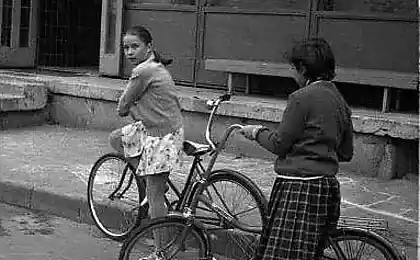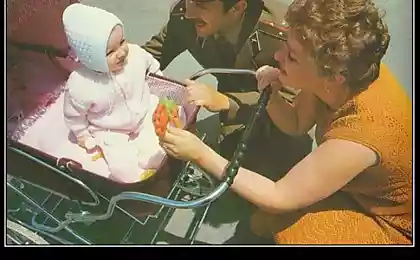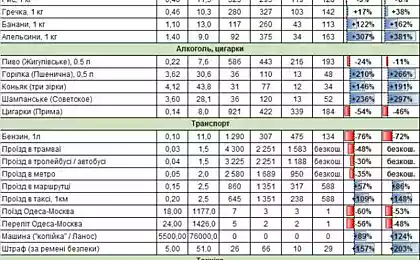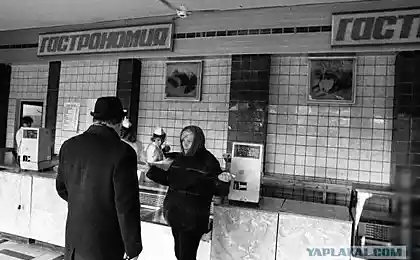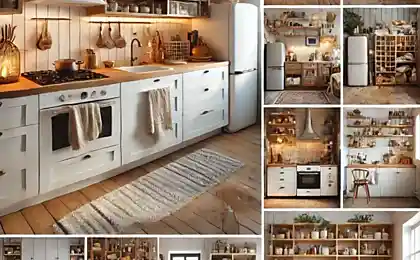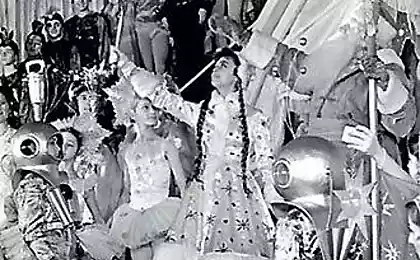146
Why you should gather at the kitchen table
Kitchen in the USSR was a special warm place of friendly gatherings, tea drinking and, as usual, creativity.
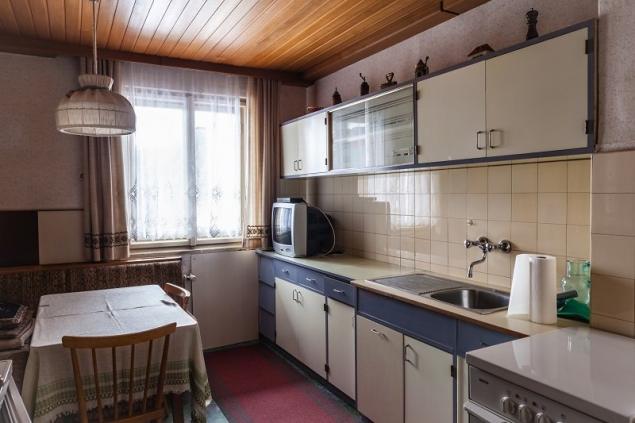
It was in the kitchen that the whole family gathered and met friends, treated with tea, fed with jam, sang songs, conducted heartfelt conversations “for life” and heated debates about politics.

And on holidays, of course, there was a feast, but already in the hall, where they took out a table with a folding countertop and a festive tablecloth. Why was it so and where has it all gone now?
The origins of the phenomenon of Soviet cuisine are communal, which have become most widespread after the revolution as a result of violent “seals”. Then, according to the decree of V. I. Lenin, the Soviet power forced workers into the spacious apartments of rich citizens.
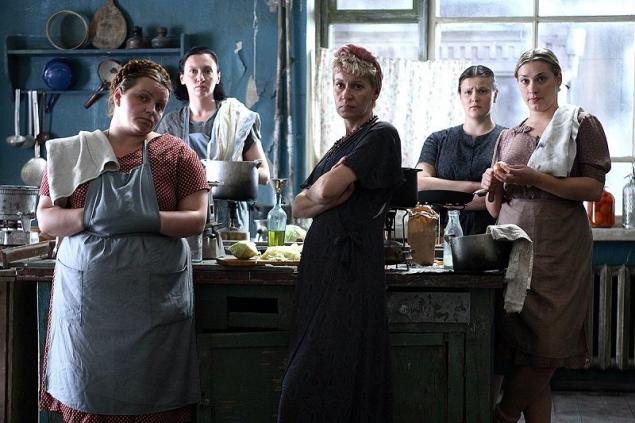
At one point, instead of one, up to ten or more families began to live in some apartments. Honored Artist of the RSFSR Tatiana Okunevskaya recalls her communal childhood:
“From the kitchen and all the scandals begin, there is enough space in it to put a tiny table, kerosene or primus on it, seven families, six tables, we are new tenants, seventh, our table does not fit, and our kerosene stands on the stove.
Everyone knows who eats, drinks, what lives, who loves whom, who hates whom! Dad says no civil war can compare to our apartment. Here the battle is national, social, party, and political.
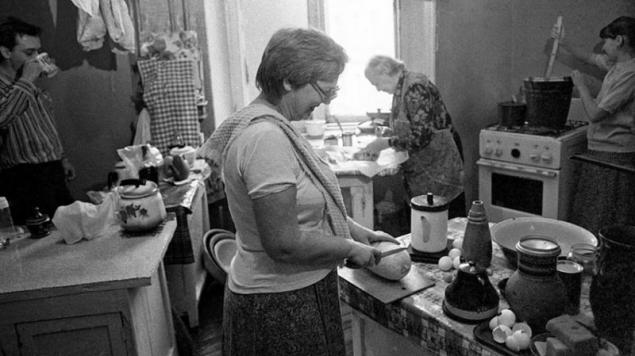
But still. communal Not only did it divide, but it also united people in its own way. The habit of gathering in the kitchen for general conversations remained, even when Soviet people began to receive separate apartments.
In the kitchen, you can do many things that you can not in the room: smoke in the hood or just out the window, sit late, sing without disturbing relatives who are already asleep.
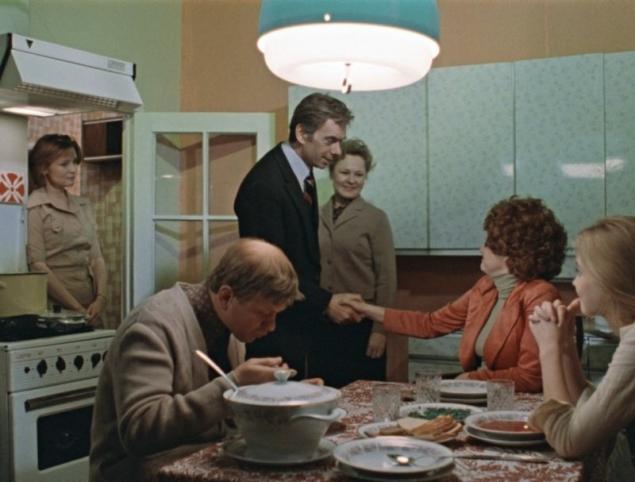
A small kitchen creates a feeling of coziness, food and alcohol are always at hand and the refrigerator purrs so pleasantly. Of course, you can also sit in the hall, but there will be no such proximity as in the kitchen. Everyone will go to the sofas and chairs, stare at the TV, and it turns out that everyone is on their own.
Kitchen gatherings of the late 70s recalls the ex-husband of Alla Pugacheva, film director and writer Alexander Stefanovich: “Kitchen in general was the center of our modest home.” Then everyone lived in small apartments and arranged “receptions” not in living rooms, which many simply did not exist, but in kitchens.

Alla and I had kitchen meetings all the time. They gathered singers, musicians, artists, directors, screenwriters. No one was embarrassed by the remoteness of our home or the crampedness. Everybody fit in somehow.
When there was not enough space, they sat on the floor. Alla entertained the guests and I fed them. I liked to cook duck or kebabs and listen to famous bards and poets. I will never forget how Bella Akhmadulina read her poems in our six-meter kitchen. Some people find it hard to believe this now.

Today, people stopped gathering in the kitchen. Thanks to the Internet, the world has become closer and more accessible in terms of communication, but there is also a downside: now we prefer to communicate online rather than live, even with our closest relatives and friends who live not so far away.

And if you can meet, there are plenty of places for this. We can afford to meet friends in a cafe where nothing prevents us from communicating as freely on any topic as at home.
More familiar to Russians is the concept of personal space, which until recently seemed a “European fad”. We began to appreciate the apartment, where we do not want to invite everyone, and even with friends prefer to meet outside the house.
Is that bad? In part, yes, because communication today lacks the former sincerity and trust. But this is not a reason to be discouraged, because changes bring with them opportunities for change for the better. It remains to be used to still frequent with friends.

It was in the kitchen that the whole family gathered and met friends, treated with tea, fed with jam, sang songs, conducted heartfelt conversations “for life” and heated debates about politics.

And on holidays, of course, there was a feast, but already in the hall, where they took out a table with a folding countertop and a festive tablecloth. Why was it so and where has it all gone now?
The origins of the phenomenon of Soviet cuisine are communal, which have become most widespread after the revolution as a result of violent “seals”. Then, according to the decree of V. I. Lenin, the Soviet power forced workers into the spacious apartments of rich citizens.

At one point, instead of one, up to ten or more families began to live in some apartments. Honored Artist of the RSFSR Tatiana Okunevskaya recalls her communal childhood:
“From the kitchen and all the scandals begin, there is enough space in it to put a tiny table, kerosene or primus on it, seven families, six tables, we are new tenants, seventh, our table does not fit, and our kerosene stands on the stove.
Everyone knows who eats, drinks, what lives, who loves whom, who hates whom! Dad says no civil war can compare to our apartment. Here the battle is national, social, party, and political.

But still. communal Not only did it divide, but it also united people in its own way. The habit of gathering in the kitchen for general conversations remained, even when Soviet people began to receive separate apartments.
In the kitchen, you can do many things that you can not in the room: smoke in the hood or just out the window, sit late, sing without disturbing relatives who are already asleep.

A small kitchen creates a feeling of coziness, food and alcohol are always at hand and the refrigerator purrs so pleasantly. Of course, you can also sit in the hall, but there will be no such proximity as in the kitchen. Everyone will go to the sofas and chairs, stare at the TV, and it turns out that everyone is on their own.
Kitchen gatherings of the late 70s recalls the ex-husband of Alla Pugacheva, film director and writer Alexander Stefanovich: “Kitchen in general was the center of our modest home.” Then everyone lived in small apartments and arranged “receptions” not in living rooms, which many simply did not exist, but in kitchens.

Alla and I had kitchen meetings all the time. They gathered singers, musicians, artists, directors, screenwriters. No one was embarrassed by the remoteness of our home or the crampedness. Everybody fit in somehow.
When there was not enough space, they sat on the floor. Alla entertained the guests and I fed them. I liked to cook duck or kebabs and listen to famous bards and poets. I will never forget how Bella Akhmadulina read her poems in our six-meter kitchen. Some people find it hard to believe this now.

Today, people stopped gathering in the kitchen. Thanks to the Internet, the world has become closer and more accessible in terms of communication, but there is also a downside: now we prefer to communicate online rather than live, even with our closest relatives and friends who live not so far away.

And if you can meet, there are plenty of places for this. We can afford to meet friends in a cafe where nothing prevents us from communicating as freely on any topic as at home.
More familiar to Russians is the concept of personal space, which until recently seemed a “European fad”. We began to appreciate the apartment, where we do not want to invite everyone, and even with friends prefer to meet outside the house.
Is that bad? In part, yes, because communication today lacks the former sincerity and trust. But this is not a reason to be discouraged, because changes bring with them opportunities for change for the better. It remains to be used to still frequent with friends.

